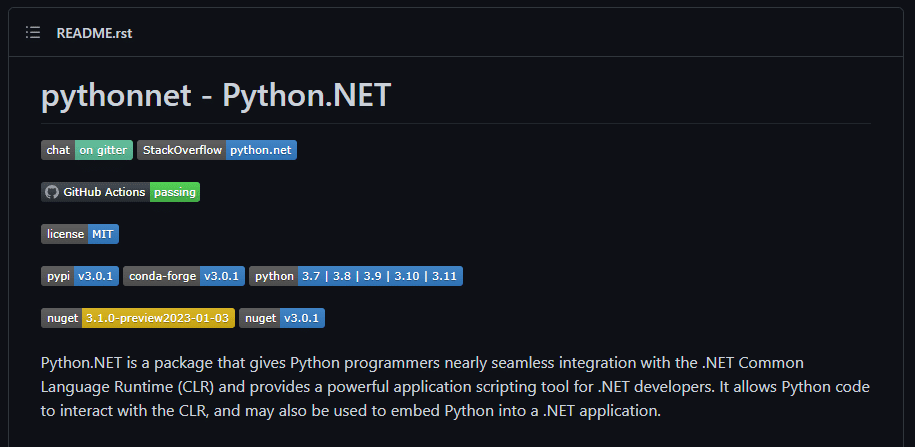Content that is all about programming and coding in C# (CSharp)! Find examples of code you can use along with tutorials.
Working with strings is probably one of the earliest things we get to do as C# developers. In fact, if you consider that most of us start with the "Hello, World!" example, you're being exposed to the string type right away. But as you continue to use strings, you'll quickly find that you want to work with strings that span multiple lines and how we define multiline strings might be a tricky topic for beginners. No sweat! In this article, we'll look at some simple code examples that demonstrate how to define multiline strings. I'll also link over to GitHub where you can see this code committed and pushed up to a public repository. Finally, the last example contains a special bonus that I think you'll like (even if it's a slightly more advanced topic). Read until the end! What's…
In C# 9.0 we received access to a great quality of life type called the record. You can read more about that from Microsoft here. Record types allowed us as dotnet programmers to skip a lot of boiler plate code, thereby saving us time and making code more readable. Wins all around! Before record types, we might have simple data transfer objects (called DTOs) that would look something like the following: public sealed class MyData { public MyData( string value1, int value2) { Value1 = value1; Value2 = value2; } publc string Value1 { get; } publc int Value2 { get; } } And for a simple class with two properties... I think we can all agree that the verbosity here is just over the top. With the record type that we were given access to, we can now write…
As a C# developer, understanding the different simple data types in C# and when to use them is crucial for writing efficient and maintainable code. I've been trying to spend more time this year putting together some content aimed at really introductory level programming. There's plenty of resources available online, but I want to do my part to ensure I can help break down some of the barriers for people getting started on their programming journey. In this beginner's guide, we will look at the basics of the most commonly used simple data types in C#, including int, float, double, byte, char, bool, and string. We will also look at how these data types differ from each other and when to use them in your C# programming! Integer Data Types The most commonly used integer data types in C# are…
Python is a powerful and versatile programming language that has become increasingly popular. For many, it's one of the very first programming languages they pick up when getting started. Some of the highest traffic posts on my blog many years after they were written look at using C# and Python together. Today we're going to explore how you can use Python from inside a C# .NET Core application with much more modern approaches than my original articles. Enter Pythonnet! Pythonnet Package & Getting Started We're going to be looking at Python for .NET in order to accomplish this goal. This library allows you to take advantage of Python installed on the running machine from within your .NET Core applications. You must configure it to point at the corresponding Python DLL that you'd like to use, and after a couple of…
Organizing code into Autofac modules can make maintaining code much easier and improve extensibility! It all starts with the Autofac module class. Check it out!
In Unity3D, the scripts we write and attach to GameObjects inherit from a base class called MonoBehaviour (and yes, that says Behaviour with a U in it, not the American spelling like Behavior... Just a heads up). MonoBehaviour instances can be attached to GameObjects in code by calling the AddComponent method, which takes a type parameter or type argument, and returns the new instance of the attached MonoBehaviour that it creates. This API usage means that: We cannot attach existing instances of a MonoBehaviour to a GameObject Unity3D takes care of instantiating MonoBehaviours for us (thanks Unity!) ... We can't pass parameters into the constructor of a MonoBehaviour because Unity3D only handles parameterless constructors (boo Unity!) So what's the problem with that? It kind of goes against some design patterns I'm a big fan of, where you pass your object's…
Why Consider Using Autofac With Unity3D? I think using a dependency injection framework is really valuable when you're building a complex application, and in my opinion, a game built in Unity is a great example of this. Using Autofac with Unity3D doesn't need to be a special case. I wrote a primer for using Autofac, and in it I discuss reasons why it's valuable and some of the reasons you'd consider switching to using a dependency container framework. Now it doesn't need to be Autofac, but I love the API and the usability, so that's my weapon of choice. Building a game can result in many complex systems working together. Not only that, if you intend to build many games it's a great opportunity to refactor code into different libraries for re-usability. If we're practicing writing good code using constructor…
Looking to get started using dependency injection with Autofac in your projects? Here's a quick primer on what it is and how to get going for your next project.
Unity3D Default .NET Framework I recently wrote that I wanted to start writing more Unity3D articles because I'm starting to pick up more Unity3D hobby work. It felt like a good opportunity to share some of my learnings so that anyone searching across the web might stumble upon this and get answers to the same problems I had. Unity3D as of 2018.1.1f1 (which is the version I'm currently using), still defaults to using .NET 3.5 as the framework version. Nothing wrong with that either. I'm sure there are reasons that they have for staying at that version, probably because of Mono and cross platform reasons if I were to guess, so I'm not complaining. For reference, this setting in Unity3D is referred to as "Scripting Runtime Version". So if you're googling more about this later, that's what Unity calls it.…
Should Every Class Have an Interface? This is part two in the sub-series of "Should Every Class Have an Interface?", and part of the bigger "What Makes Good Code?" series. Other Peoples' Code So in the last post, we made sure we could get an interface for every class we made. Okay, well that's all fine and dandy (I say half sarcastically). But you and I are smart programmers, so we like to re-use other peoples' code in our own projects. But wait just a second! It looks like Joe Shmoe didn't use interfaces in his API that he created! We refuse to pollute our beautiful interface-rich code with his! What can we do about it? Wrap it. That's right! If we add a little bit of code we can get all the benefits as the example we walked through originally. It's…






